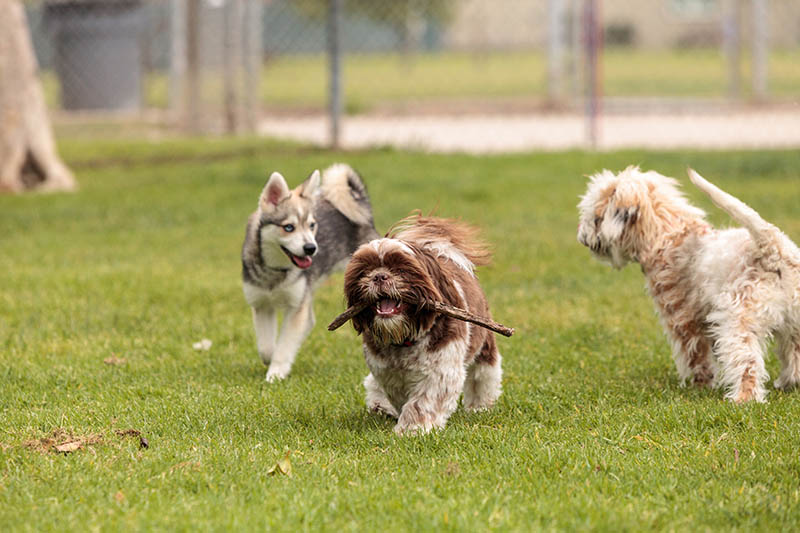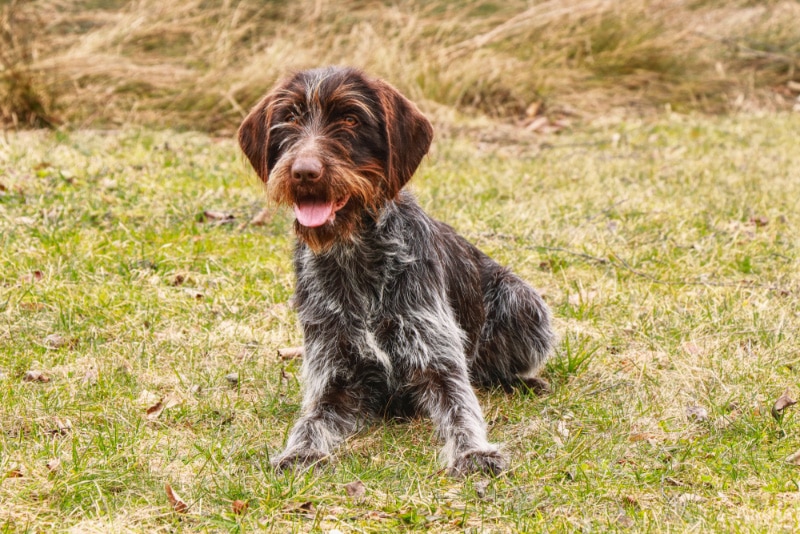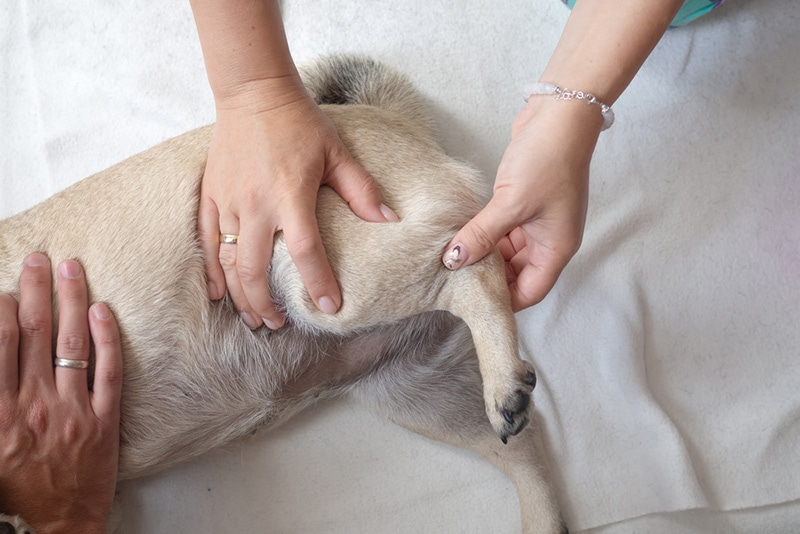Can Dogs Have Buttermilk? Vet-Reviewed Risks & Feeding Tips
Updated on

Click to Skip Ahead
Buttermilk is an appetizing fermented dairy product often used in baking to add richness and texture to whatever is being made. People may be less familiar with buttermilk these days, but at one time, buttermilk was a common feature throughout the United States and other countries, particularly if you owned a dairy farm or milked your own cows. Buttermilk is full of healthy nutrients, so as a pet parent, you may be considering offering buttermilk to your dog, but can you safely offer it to your pet?
The good news is yes, you can! Buttermilk is classed as being safe to give to most dogs; however, the caveat is not to give your furry friend too much of it and to offer it only as an occasional treat. Also, be sure to run any additions of human food to your dog’s diet by your vet first to be sure your particular dog is healthy enough to eat it.
What Is Buttermilk?
There is an old-school version and a new-school version of buttermilk. Essentially, buttermilk is the liquid part that is drained off when churning cream to make butter.
The modern version of buttermilk, mostly found in supermarkets today, is a fermented cultured product, similar to runny yogurt. It is homogenized and pasteurized with multiple strains of bacteria introduced into the liquid to create the bacteria that would be naturally present in traditional-style buttermilk.
Buttermilk, either way, is a type of fermented milk that keeps longer than any of the usual dairy milks. It may also be frozen and kept for a further 3 months.
Can My Dog Have Buttermilk?
There is no doubt that the healthiest drink to give your dog is water. Their bodies are made up of around 70% water, and truthfully, they don’t require extra liquid substances to support their hydration, unless they have imbalances and your veterinarian has advised supplements to add to their water or alternative fluids.
However, if you wish to offer your dog buttermilk as a treat, it can be given in moderation, and this can bring both you and your pet joy as well as increase the bond between you both.
If you are looking to prepare a treat or special snack for your dog using buttermilk, like dog-friendly pancakes, then buttermilk might be a good ingredient to use.

Health Concerns
Buttermilk contains multiple nutritious elements 1, such as vitamins B12 and B2, vitamin D, omega 3’s, and calcium. There are a few concerns to be aware of, though.
Lactose
Lactose is a a type of milk sugar that many adult dogs (and some humans) cannot tolerate. If it can’t be digested properly, as is the case in lactose intolerant dogs, it causes disruption and issues with the gastrointestinal system and will elicit various problems. Milk and associated dairy products are generally not advised for dogs to consume due to the lactose content and due to dairy being one of the most common allergies 2 seen in canines.
On the upside, buttermilk is significantly lower in lactose than regular milk, so it is possible this may be given to your dog with no problems observed. It is also true that not all dogs are intolerant or allergic to lactose, in which case buttermilk in moderation shouldn’t cause any digestive issues. However, always be sure to speak to your vet before you give your dog any buttermilk or other new foods.
- Abdominal pain or discomfort
- Bloating
- Gurgling stomach and bowels
- Diarrhea
- Increased thirst
- Vomiting
- Nausea
If you notice any of these signs, stop offering buttermilk straight away and have your dog checked over by your veterinarian.
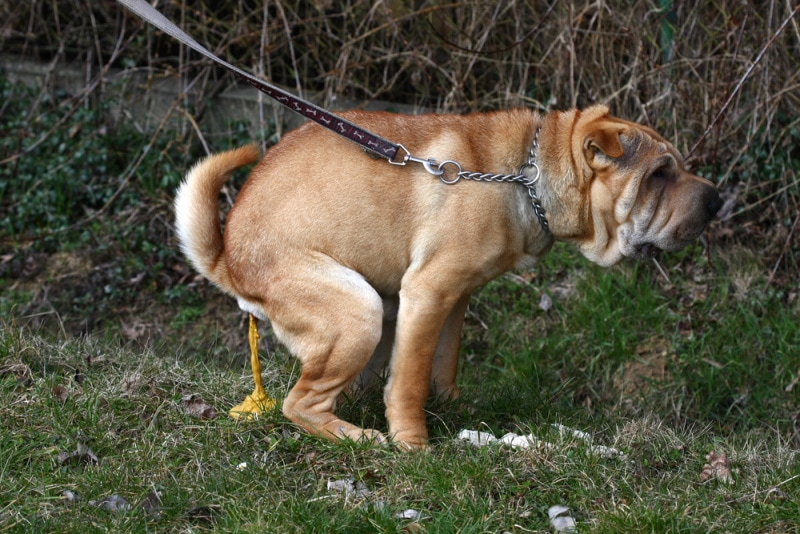
Allergies
Dairy is one of the most common allergies among dogs, and care should be taken to ensure your dog is not allergic or intolerant to dairy products and lactose. Stop giving your dog buttermilk if you notice any of these signs of a dairy allergy:
- Diarrhea/vomiting
- Constipation
- Itchiness
- Red skin
- Hair loss
- Dry skin
- Hives
Fat
Buttermilk is typically made from low-fat milk, but will still contain an amount of fat that most dogs just don’t need. With this in mind, you’ll want to watch that your dog doesn’t start packing the pounds and increasing their waistline. The fat content is certainly a good reason to offer buttermilk only in moderation and is best avoided if your dog is overweight, obese, on certain prescriptions, or has other health conditions.
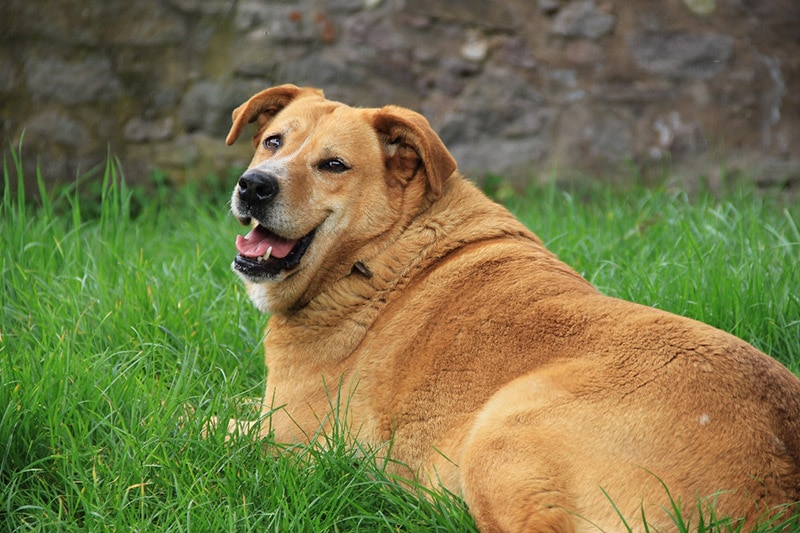
Sodium
Sodium is salt, and buttermilk can contain high amounts of sodium. If taken in excess or if your dog has electrolyte imbalances, increased thirst may be seen as well as dehydration.
Too Much Buttermilk
Overdoing the buttermilk can cause problems such as diarrhea, abdominal discomfort, bloating, gas, nausea, and even health complications like pancreatitis.
How Much Buttermilk Can My Dog Have?
Before giving your dog any buttermilk, check with your vet to be sure they are healthy enough to have it and to get the proper amounts.
There aren’t any set rules or amounts regarding how much buttermilk your dog can drink, other than too much of it will likely cause stomach upsets and diarrhea. However, it’s important to keep in mind that your dog doesn’t need buttermilk as part of their regular diet, so serving it as an occasional treat in the smallest amounts possible is always best.

Conclusion
While it is not necessary to feed your dog buttermilk, it can be given in moderation to your dog as long as they are not allergic or intolerant to dairy or lactose and it is ok’d by their vet. In any case of allergies or intolerances towards dairy or lactose, buttermilk should not be given.
Featured Image Credit: NataliaPopova, Shutterstock



